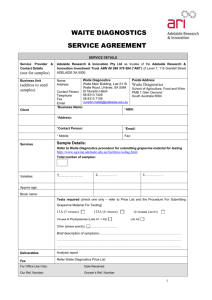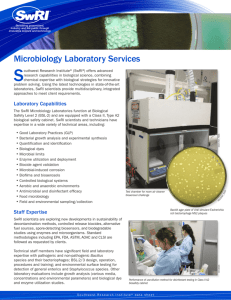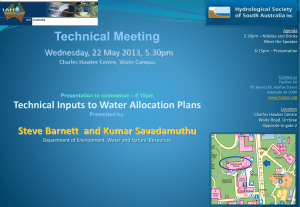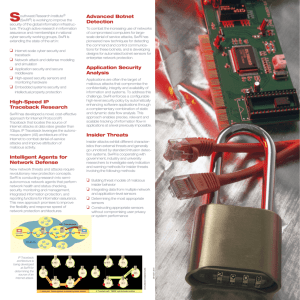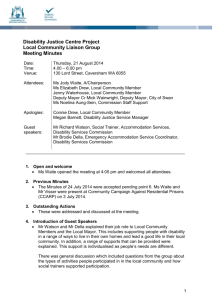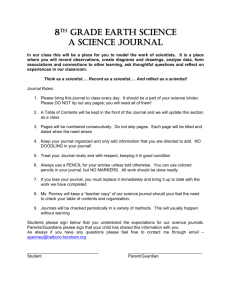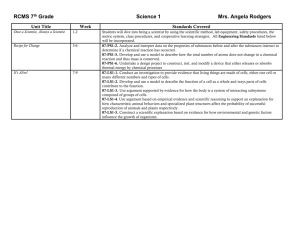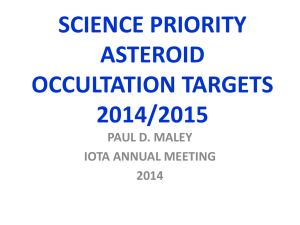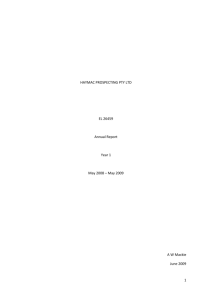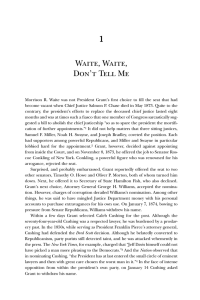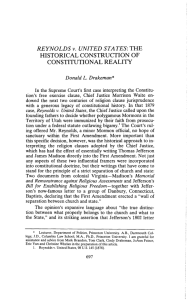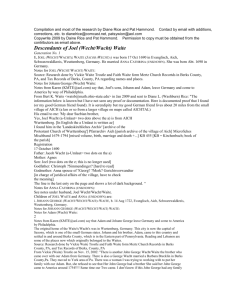here - Nordic Network of Astrobiology
advertisement
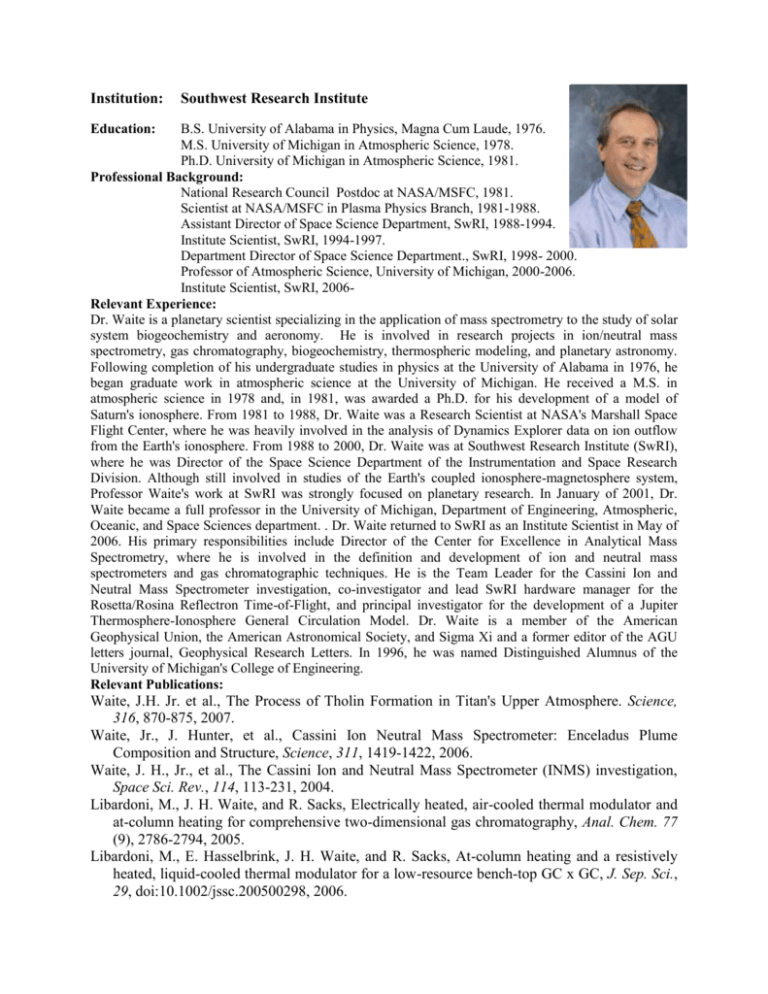
Institution: Southwest Research Institute Education: B.S. University of Alabama in Physics, Magna Cum Laude, 1976. M.S. University of Michigan in Atmospheric Science, 1978. Ph.D. University of Michigan in Atmospheric Science, 1981. Professional Background: National Research Council Postdoc at NASA/MSFC, 1981. Scientist at NASA/MSFC in Plasma Physics Branch, 1981-1988. Assistant Director of Space Science Department, SwRI, 1988-1994. Institute Scientist, SwRI, 1994-1997. Department Director of Space Science Department., SwRI, 1998- 2000. Professor of Atmospheric Science, University of Michigan, 2000-2006. Institute Scientist, SwRI, 2006Relevant Experience: Dr. Waite is a planetary scientist specializing in the application of mass spectrometry to the study of solar system biogeochemistry and aeronomy. He is involved in research projects in ion/neutral mass spectrometry, gas chromatography, biogeochemistry, thermospheric modeling, and planetary astronomy. Following completion of his undergraduate studies in physics at the University of Alabama in 1976, he began graduate work in atmospheric science at the University of Michigan. He received a M.S. in atmospheric science in 1978 and, in 1981, was awarded a Ph.D. for his development of a model of Saturn's ionosphere. From 1981 to 1988, Dr. Waite was a Research Scientist at NASA's Marshall Space Flight Center, where he was heavily involved in the analysis of Dynamics Explorer data on ion outflow from the Earth's ionosphere. From 1988 to 2000, Dr. Waite was at Southwest Research Institute (SwRI), where he was Director of the Space Science Department of the Instrumentation and Space Research Division. Although still involved in studies of the Earth's coupled ionosphere-magnetosphere system, Professor Waite's work at SwRI was strongly focused on planetary research. In January of 2001, Dr. Waite became a full professor in the University of Michigan, Department of Engineering, Atmospheric, Oceanic, and Space Sciences department. . Dr. Waite returned to SwRI as an Institute Scientist in May of 2006. His primary responsibilities include Director of the Center for Excellence in Analytical Mass Spectrometry, where he is involved in the definition and development of ion and neutral mass spectrometers and gas chromatographic techniques. He is the Team Leader for the Cassini Ion and Neutral Mass Spectrometer investigation, co-investigator and lead SwRI hardware manager for the Rosetta/Rosina Reflectron Time-of-Flight, and principal investigator for the development of a Jupiter Thermosphere-Ionosphere General Circulation Model. Dr. Waite is a member of the American Geophysical Union, the American Astronomical Society, and Sigma Xi and a former editor of the AGU letters journal, Geophysical Research Letters. In 1996, he was named Distinguished Alumnus of the University of Michigan's College of Engineering. Relevant Publications: Waite, J.H. Jr. et al., The Process of Tholin Formation in Titan's Upper Atmosphere. Science, 316, 870-875, 2007. Waite, Jr., J. Hunter, et al., Cassini Ion Neutral Mass Spectrometer: Enceladus Plume Composition and Structure, Science, 311, 1419-1422, 2006. Waite, J. H., Jr., et al., The Cassini Ion and Neutral Mass Spectrometer (INMS) investigation, Space Sci. Rev., 114, 113-231, 2004. Libardoni, M., J. H. Waite, and R. Sacks, Electrically heated, air-cooled thermal modulator and at-column heating for comprehensive two-dimensional gas chromatography, Anal. Chem. 77 (9), 2786-2794, 2005. Libardoni, M., E. Hasselbrink, J. H. Waite, and R. Sacks, At-column heating and a resistively heated, liquid-cooled thermal modulator for a low-resource bench-top GC x GC, J. Sep. Sci., 29, doi:10.1002/jssc.200500298, 2006.
